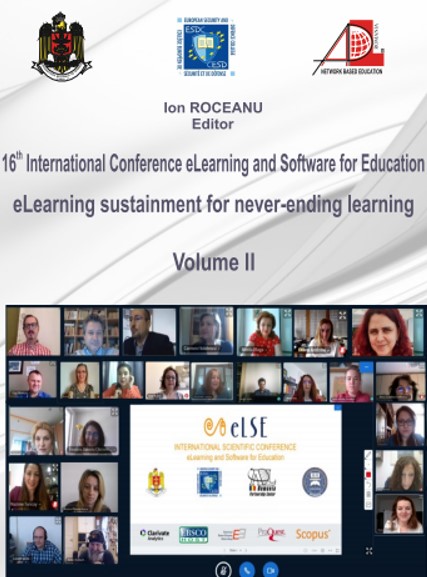AI-BASED ELEARNING FOR TRAINING PROJECT MANAGERS TO NAVIGATE IN VUCA ENVIRONMENTS
AI-BASED ELEARNING FOR TRAINING PROJECT MANAGERS TO NAVIGATE IN VUCA ENVIRONMENTS
Author(s): Constanţa-Nicoleta Bodea, Radu Ioan MOGOŞ, Maximilian Müller, Maria-Iuliana DascăluSubject(s): ICT Information and Communications Technologies, Distance learning / e-learning
Published by: Carol I National Defence University Publishing House
Keywords: mindset; competences; eLearning; artificial intelligence; VUCA environments; project management;
Summary/Abstract: Training project managers for navigating their projects in VUCA environments is considered as being extremely challenging. For fulfilling a such objective, the technology-enhanced learning should consider applying diverse and AI-based methods and tools. The paper presents the potential of AI in e-learning for the successfully development of a new mindset as required for managing projects in contexts with high volatility, uncertainty, complexity and ambiguity. The paper presents the analysis of the efficacy of different AI-based learning and teaching methods for developing the competences associated with the project managers’ mindset, as requested for acting in VUCA environments. The main AI methods and tools which are considered for e-learning are: semantic web, ontologies, machine learning algorithms, AI-based simulations deep-learning. The impact of methods in e-learning is analyzed by considering the relevant competences associated with the mindset growth, as needed for managing projects in VUCA environments. The specific competences which are considered by the authors of the paper are aligned with the OECD Key Competencies, in relation to the creation of new value, the reconciliation of tensions and dilemmas and assuming responsibility. Personal qualities, such as curiosity, resourcefulness, resilience, integrity, engagement, and self-reflection are critical for the mindset growth. The competence model considered by authors is the IPMA ICB (Individual Competence Baseline), version 4.0. Based on this model, the competences are structured into three area: perspective, People and Practice. The authors will consider mainly the competences included in People area.
Journal: Conference proceedings of »eLearning and Software for Education« (eLSE)
- Issue Year: 16/2020
- Issue No: 02
- Page Range: 319-327
- Page Count: 9
- Language: English

